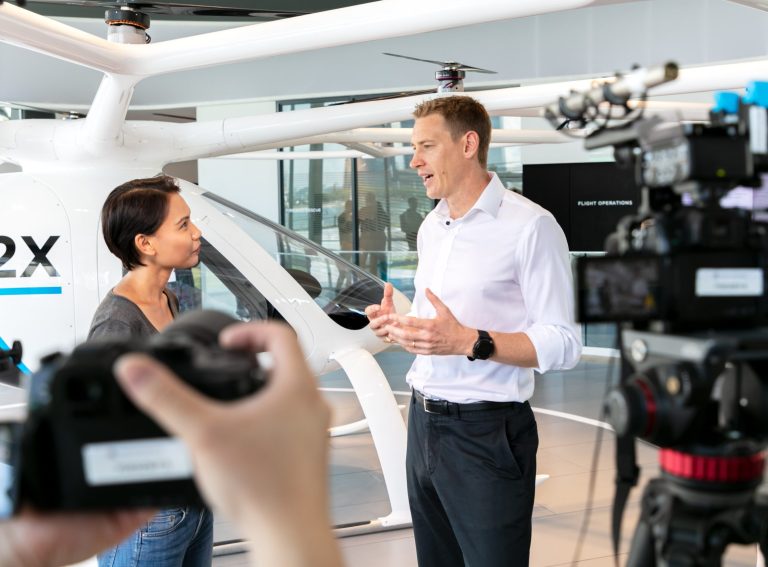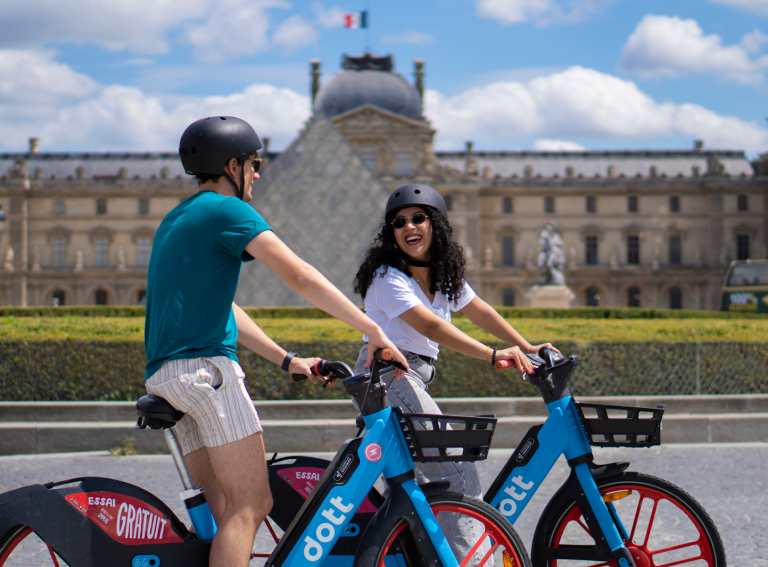Is there a place in the market for a high-end luxury e-scooter? It looks like we’re about to find out.
After two years with their heads down in development, two ex-Formula One engineers and a former Jaguar Land Rover designer have unveiled their first flagship Tesla-inspired e-scooter. With a price tag of £1,995, this is what many would call premium territory.
But drilling down into the business case, is there really demand for such a product?
Oscar Morgan, CEO and Co-Founder of the startup bo Mobility, certainly thinks its time has come.
“If you’d asked me even two years ago I’d have said no, it’s too early,” he says. “It was a single digit percentage who were asking for scooters over £1,500.
“But actually we’re finding that the premium commuter who we’re aiming at has now tried a Xiaomi, a Segway and may even have tried an INOKIM and they’re thinking ‘Wow this really fits my life’. So now riders are asking where can I find a scooter I can love, trust and ride long-term?”
The gap in the market bo believes it has spotted sits between the “classic” e-scooter priced up to £1,000 and an e-bike ranging from £2,000-£5,000.
“It’s like a premium commuter experience, specifically for home to work to home,” says Morgan.
The idea came about following Morgan’s four-year stint at Williams Advanced Engineering, working on programmes that deployed Formula One tech in other electric vehicles and sectors.
It was at Williams that Morgan met Co-Founder Harry Wills, while bo’s other Co-Founder Luke Robus joined after spending five years working on autonomous vehicles at Jaguar Land Rover’s design studio.
There came a point where Morgan felt he was actually a contributing factor to a problem, rather than a solution.
“When people buy an electric car, they tend to drive more. With road miles increasing and more people moving into cities, you realise you’re working towards a future you don’t want to live in.
“On top of this, the dynamics of a car is 50 times the size of its occupant and so congestion is a real issue.”
Given their expertise, the trio saw e-scooters as the answer. “Suddenly the vehicle has gone from being 50 times the size of the occupant to like a third of the size of the occupant.”
But if they were to pull this off, the luxury e-scooter had to be safe and customers had to feel confident parking it anywhere.
Standing out from the crowd
Morgan believes that one of the big selling points of bo’s e-scooter’s design is its fully integrated chassis.
Rather than having a normal tubular or box scooter frame, bo has re-engineered the chassis using a “monocoque” construction technique, otherwise known in the industry as a structural skin.
“The outer skin is not like a scooter wearing cladding. The skin is the structure of the scooter,” says Morgan. “And so what this allows us to do is build a pop out locking point.”
Dubbed ‘Lock and Load’, the dual-purpose built-in steel loop is very tough to break and also serves as a hook for securing bags.
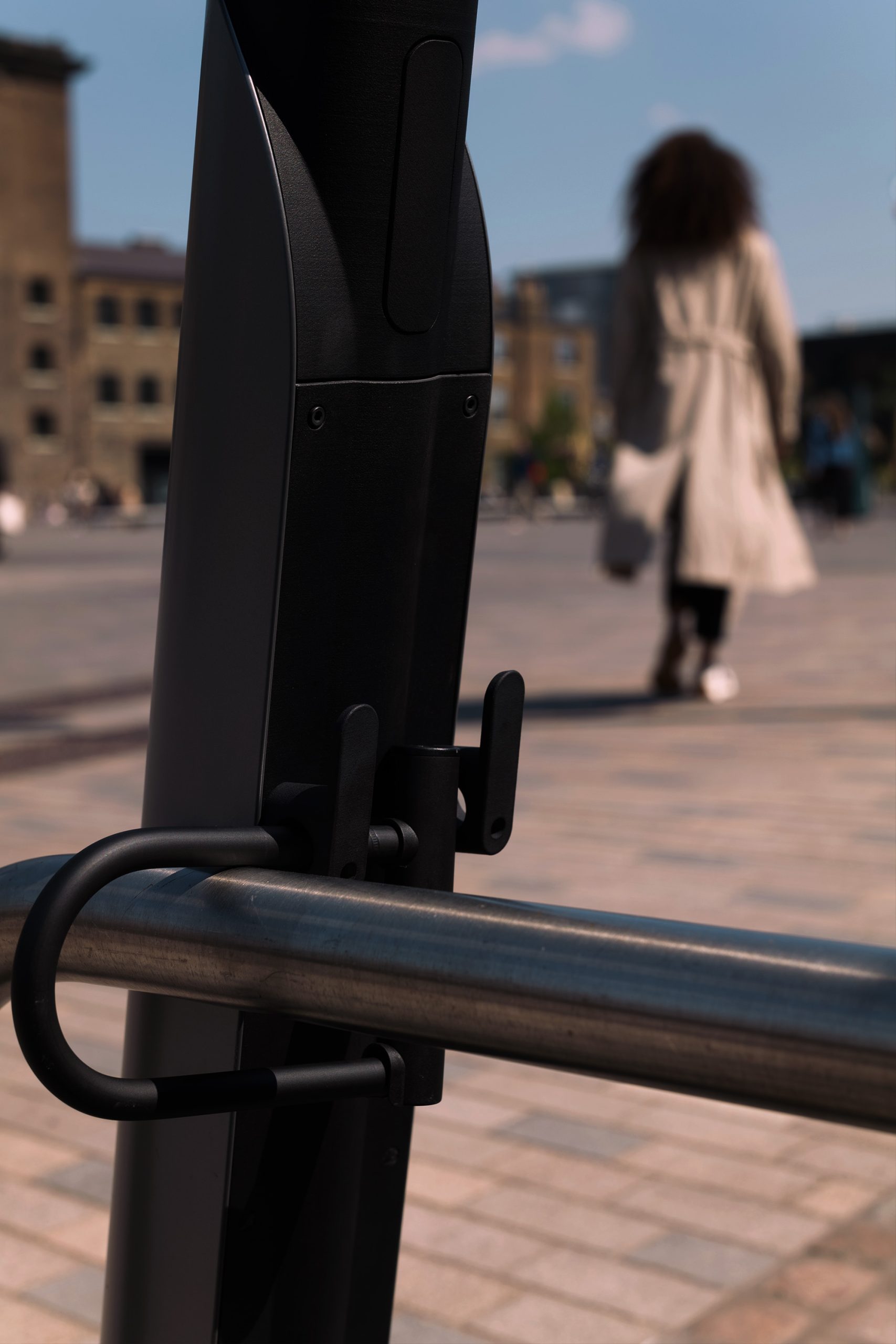
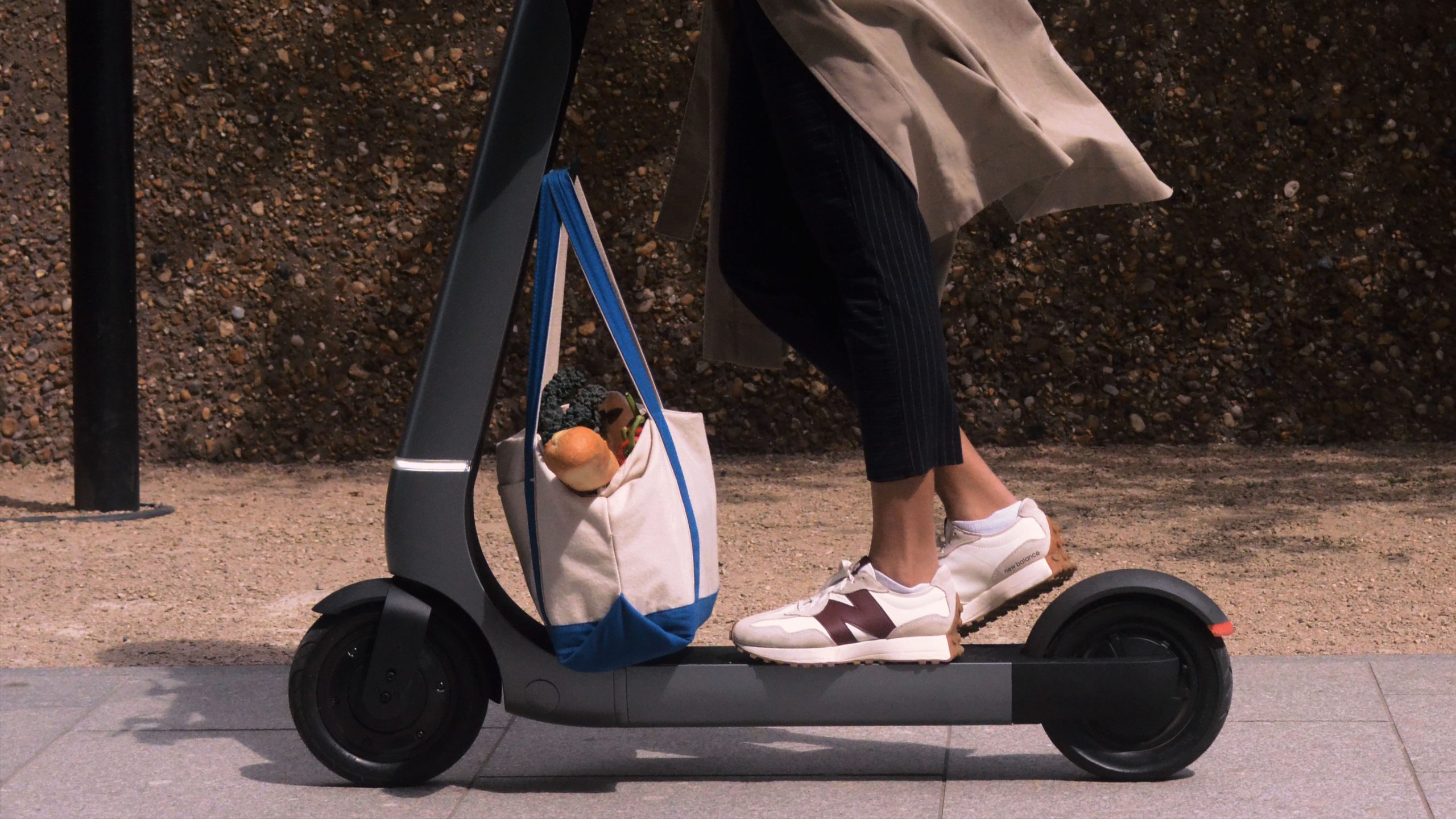
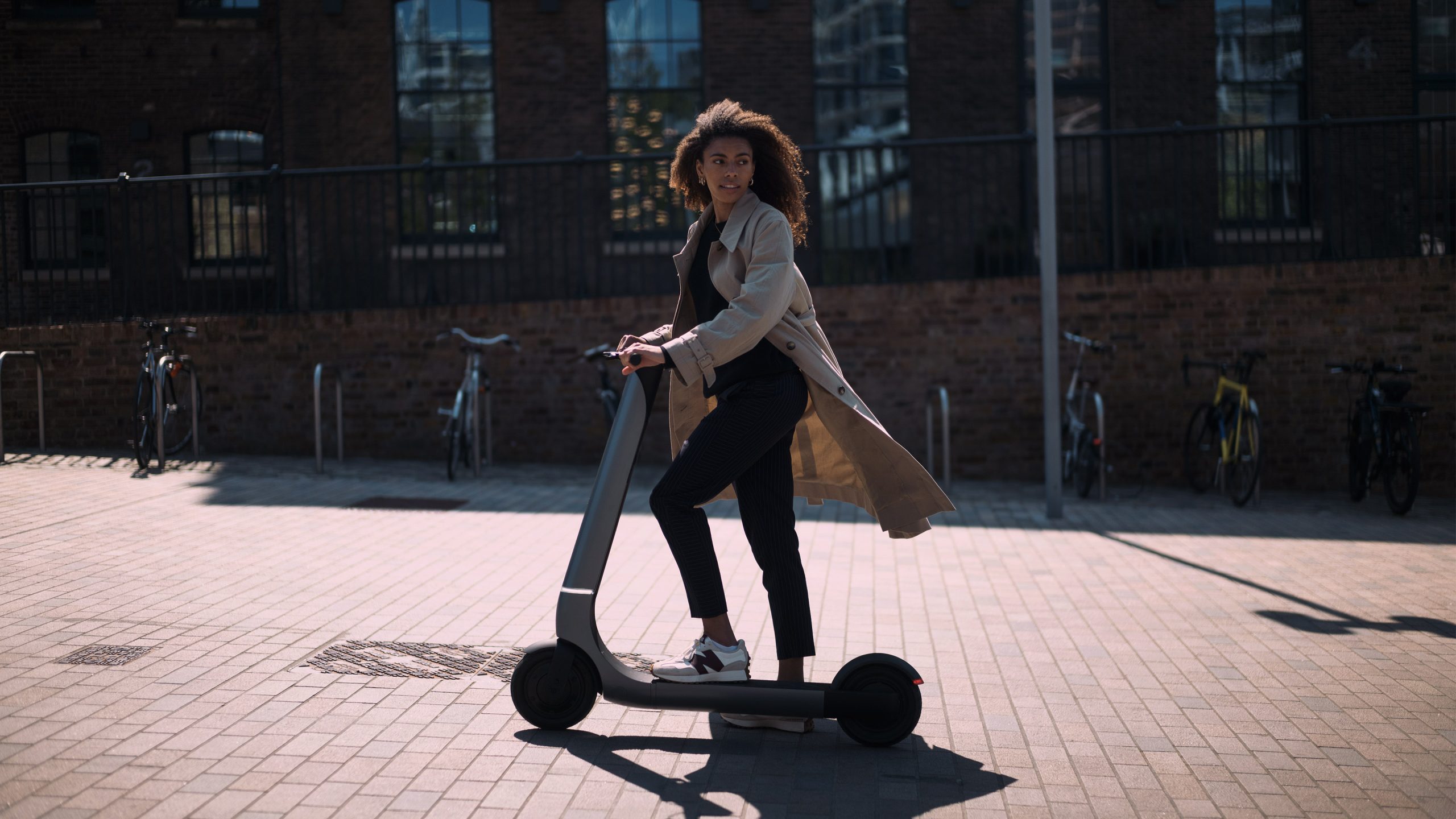
Other smart features include GPS tracking, motor locking, anti-tamper alarms and mobile notifications should someone lose sight of their bo.
Besides the D-lock up, the team has also pioneered a system called Safesteer. This is an active front-wheel stabilisation mechanism designed to counteract the threat of road bumps and potholes.
“What really matters is that we don’t ship junk. We have to create good quality products. Inevitably, that’s expensive as every single component choice you make is around whether that’s going to look after someone or not,” says Morgan.
In a bid to lessen the expense for customers and make it more accessible, bo invites riders to take out a scooter subscription for £69 per month.
Subscribe and ride
“What has caught us by surprise is that more people want to subscribe to the product than buy it outright.
“I think people are looking at the subscription and thinking ‘well that’s just over £2 a day. That’s a really cheap commute.”
Thinking ahead to when the UK legalises e-scooters on public roads, a subscription also means bo can bundle things like insurance and maintenance into the package.
“One of the very likely outcomes as a power vehicle class in the UK is that some form of third-party insurance is going to be required, and in certain countries like France that’s already necessary.”
Not only that but a subscription allows bo to maintain a relationship with its customers, while smoothing the upgrade process, as opposed to selling them a whole new product.
Whatever the package deal on bo’s roadmap, right now Morgan is focused on shipping the firm’s first batch of scooters to its so-called “Beta Group”.
The soft rollout
“The cool thing about this is the Beta Group who are testing it first will get a very early chassis number, which is always fun from a collectability point of view.”
These beta run pre-orders have now been fulfilled as part of bo’s soft rollout. This is so the team can gather direct feedback from customers.
Through next year, as it moves into mass manufacturing, bo will ramp this up to meet the demand for the UK, EU and USA.
Ideally at this stage, bo would like to launch its e-scooters in the UK where the first units are being assembled.
“It would be a total dream if the UK legislation arrived early next year such that we could launch primarily here.
“But we’ve also found that two-thirds of our web traffic, and a huge proportion of our pre-orders are coming from the USA, so this is definitely a target market for us, as is Western Europe.”
Obviously it is still early days for the team, but the initial pre-order uptake, combined with a neat subscription model and tech-laden product, does suggest bo has real potential to carve out a niche in the market.



